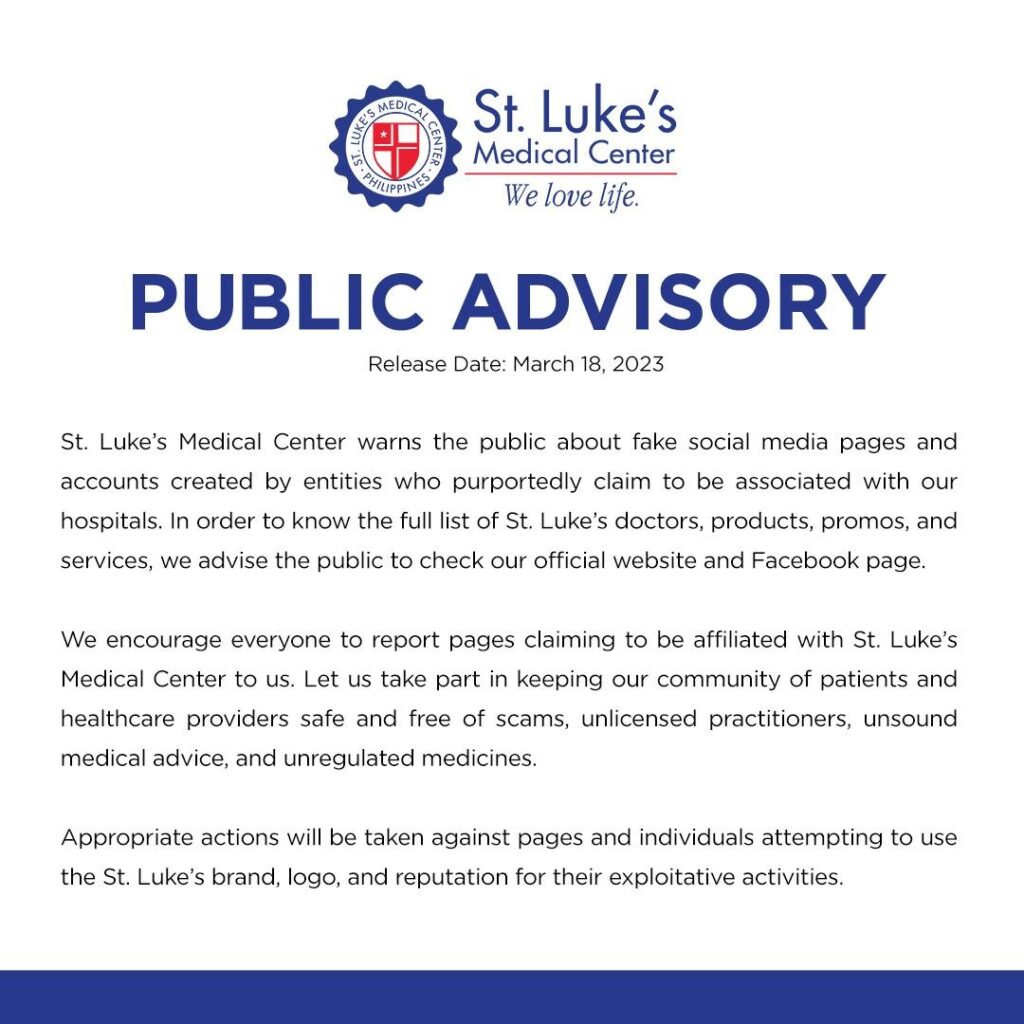The fight against fake news and content continues!
St. Luke’s Medical Center, a well-known medical institution in Metro Manila, has been the recent victim of social media deception when a fake page of a fake weight loss center bearing its name started making the rounds on Facebook through sponsored posts.
The sponsored posts contain photos that appear as though Hayao Miyazaki is one of the endorsers of the fake weight loss center.
On March 18, St. Luke’s Medical Center released a public advisory through its official Facebook page regarding fake social media pages that claim to be associated with their hospitals. The full statement is as follows:
“St. Luke’s Medical Center warns the public about fake social media pages and accounts created by entities that purportedly claim to be associated with our hospitals. In order to know the full list of St. Luke’s doctors, products, promos, and services, we advise the public to check our official website and Facebook page.
We encourage everyone to report pages claiming to be affiliated with St. Luke’s Medical Center to us. Let us take part in keeping our community of patients and healthcare providers safe and free of scams, unlicensed practitioners, unsound medical advice, and unregulated medicines.
Appropriate actions will be taken against pages and individuals attempting to use the St. Luke’s brand, logo, and reputation for their exploitative activities.”
The advisory was released following reports of a fake social media page named St. Luke’s Weight Control Center, which hawked a “high-tech weight-loss pants” to the public. The fake center also used the famous Japanese animator Hayao Miyazaki in its deceptive advertisement. Based on the fake center’s post, Miyazaki is a doctor from Tokyo Therapy and Wellness Center in Japan, and he’s collaborating with St. Luke’s Medical Central to support the treatment of the first 800 Filipinos to lose weight safely and effectively with the help of ‘quantum technology’.
St. Luke’s Medical Center has disowned the post and has advised the public not to believe everything they see on the internet unless it has been proven to be authentic. The private institution also sought further help to take down the post to avoid deceiving more innocent people.
As of this writing, the fake advertisement is no longer available on Facebook.
St. Luke’s Medical Center’s case isn’t an isolated one–there seems to be a growing visibility in fake pages that are able to con its way into the security systems that social networks have in place. Just recently, a member of the POP! team got curious enough to click on a sponsored post supposedly by “Google Bard,” which, all things considered, looked like a legitimate page, given that it had a blue badge, and had over 1M followers. It had clickable links that led to a highly questionable, unsecure page.
Pages like this can fool a lot of regular users, so the responsibility of verification falls once again on users.
Other POP! stories that you might like:
Filipinos online deal with nostalgia as iconic web forum PinoyExchange bids goodbye
Twitter’s Press email now automatically responds with just a 💩
AlDub fans are once again calling for a boycott, this time of noontime show ‘Eat Bulaga’
The cause of death of Fleetwood Mac’s Christine McVie has been revealed
